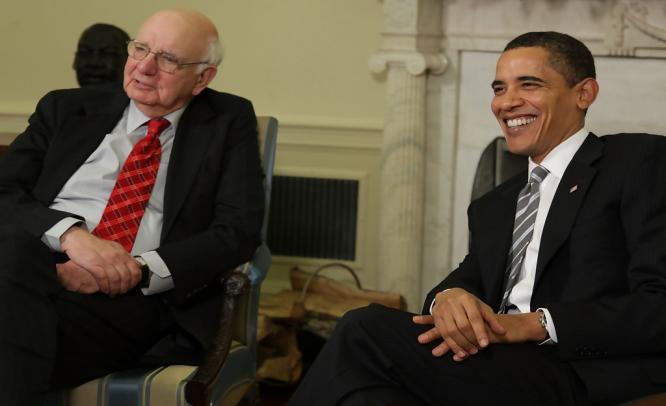The rule restricts U.S. banks, or an institution that owns a bank, from making certain kinds of speculative investments with their own money that could hurt their customers.
July 22, 2013 : The Volcker Rule is an attempt to update the Glass Steagall Act for the twenty first century, the provisions of the erstwhile act aimed at separating commercial and investment banking and had called for a complete separation of investment banking activities such as underwriting and dealing with stocks and debts from deposit taking. The act which was repealed in the 1990’s under Clinton’s administration allowed Citicorp to merge with an insurance company. The Volcker Rule, part of the Dodd Frank financial reform bill, seeks to shield bank customers from risky behaviour. The rule restricts U.S. banks, or an institution that owns a bank, from making certain kinds of speculative investments with their own money that could hurt their customers. The rule also prohibits any bank or credit union that is federally insured and accepts deposits, as well as traditional banks and investment firms like Goldman Sachs and Morgan Stanley, which are bank holding companies.
Named after Federal Reserve Chairman, Paul Volcker, the rule prohibits an insured depository institution from:
- Engaging in Proprietary Trading
- Acquiring or retaining any equity, partnership or other ownership interest in a hedge fund or private equity fund
- Sponsoring a hedge fund or a private equity fund
However, the act permits certain activities such as
- Trading in U.S. Government Securities
- Placing transactions on behalf of customers
- Hedging to reduce risk
Proprietary Trading
Proprietary Trading is a term used in investment banking, when a bank trades commodities, stocks, bonds, options or other items with its own money as opposed to its clients money, to make a profit for itself. In proprietary trading, traders trade for the bank’s own profit, unrelated to client business.
The rule designed to be a modern day version of the Glass Steagall Act, would require banks to create some sort of internal compliance program for making trades. Banks with major trading agencies would have to report to federal agencies.
Why do Banks hate Volcker Rule?
Banks oppose this rule as proprietary trading has in recent years been one of bank’s most profitable activities. Banks say the rule would bring down their profit and cost banks additional money in attempting to comply with all of the rule’s details. Traders say they will be affected as their bonuses would be cut, as they cannot make commissions on certain trades.
If the Volcker rule worked the way like its predecessor, a bank’s profit would only be derived from the difference between the interest earned on loans and interest paid on deposits, during the days of Glass Steagall, bankers followed the 3-6-3 rule, which meant they paid 3 percent interest on deposits, 6 percent interest on loans and the remaining 3 percent margin was their profit. However, modern day banks have complicated balance sheets, Bank of America and its peers hold mortgages in Montana, auto loans in Australia, American student debt and derivatives of all those products. A 3-6-3 banker may count on simple arithmetic that the lending rate is higher than deposit rates and there is a profit, but if the market is hit by a crisis then Wells Fargo might run out of money. To shield against such scenarios banks hedge, they take the opposite direction, so that if one part of the portfolio capsizes, another will gain some part of it. Hedging is vital to bank’s solvency so the Volcker rule allows this practice.
Is the Volcker Rule in place ?
The Federal Reserve issued a ruling on April 19, 2012 stating that banks would have two years to bring their activities in line with the Volcker rule, before regulations could be enforced, giving banks to time to wind down their trading operations. Earlier, the congress had mandated that the Volcker rule would be effective from July 2012, two years after Dodd Frank was passed, however, the Dodd Frank Financial Reform Law could take years to implement as regulators wrangle over how to implement the legislation. Daniel M Gallagher, a commissioner at the SEC said regulators at both the SEC and Federal Reserve are at odds over several important provisions of the law, including the ban on proprietary trading.

